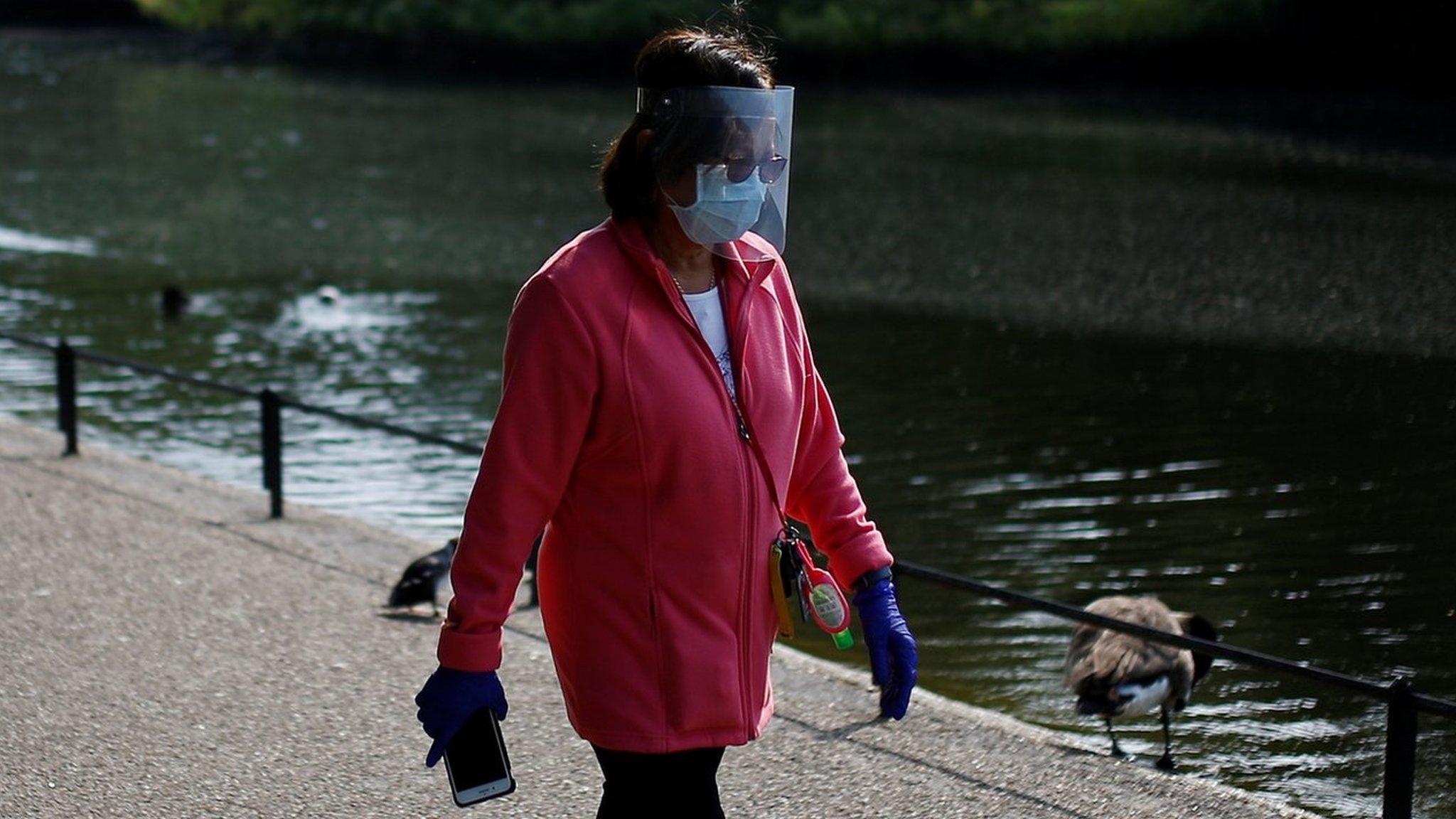Government communications are failing, says ex-No 10 adviser
- Published
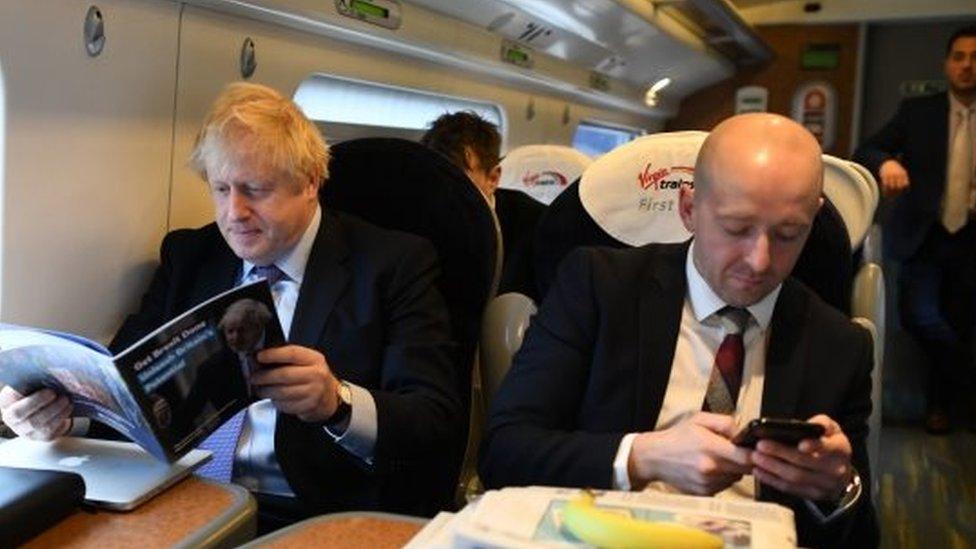
Lee Cain with the prime minister during the 2019 election campaign
Government communications are "failing in many of its most basic functions" and need to be overhauled, a former No 10 communications director has said.
Lee Cain - who worked for Boris Johnson from 2019 to 2020 - says inexperienced staff and "endemic" leaking damaged the government's Covid response.
This, he argues in a paper, led to the public receiving mixed messages "at a critical time".
A UK government spokesperson said: "These claims are misleading".
In a statement they said: "[The] Government Communication Service is internationally recognised as a world leader in public communications demonstrated by our work across the globe in over 25 countries."
Mr Cain previously worked on communications for the Vote Leave team during the Brexit referendum and as a special adviser at the Department for Food and Rural Affairs and the Foreign Office.
He quit his Downing Street role in December 2020 amid reports of internal tensions.
Unlike his ally and former No 10 colleague Dominic Cummings, Mr Cain has been less vocal in his condemnation of how government is run since stepping down.
However, his paper for the Institute for Government is strongly critical of the way Whitehall handles media relations and its publicity campaigns.
He says the pandemic put the structure under "increasing pressure" and that the initial Covid campaigns were "poor" because staff did not have an "adequate understanding of strategic communications or campaigns".
While praising the efforts of many civil servants, he also accuses some press officers of being "afraid" to pick up the phone to journalists.
Responding to these claims, the government said it had "set out clear, targeted and effective communications to help the public protect themselves, directly preventing millions of infections and saving thousands of lives".
It said its Covid campaigns were "reaching an estimated 95% of adults on average 17 times per week at the peak, using every means possible including social media, influencers, radio, TV and widespread digital marketing".
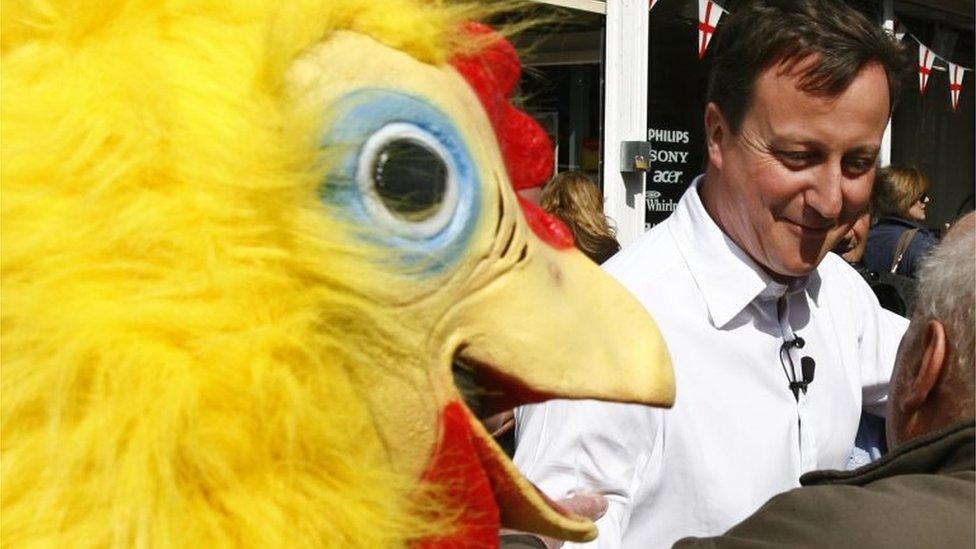
Prior to entering No 10, Lee Cain spent time as a journalist which included a stint following David Cameron around dressed as a chicken
Mr Cain proposes cutting the number of communications officers in Whitehall from 8,000 to 2,000, but also suggests improving the training available.
Specifically he says staff need to be trained so they can produce video clips, use social media and design graphics.
He noted that in the early days of the pandemic, "put starkly, there was nobody with the ability to create slides for the daily press conference" and that often the slides were only sent "moments before press conferences were due to begin".
The daily press conferences were introduced at the start of the pandemic, and the government had planned to implement daily televised briefings covering all its business.
'Millions squandered'
In April the plan was scrapped, but Mr Cain argues there is an "increased demand" for content and that "change is inevitable".
He says the PM should continue doing televised news briefings after the end of the pandemic in a bid to improve improve transparency and accountability.
Mr Cain also expresses concern about the "millions of pounds of public money" being "squandered annually".
He notes that in 2020/21, £600m was spent on 160 campaigns that have "little impact on the public and simply weren't needed".
Related topics
- Published12 November 2020
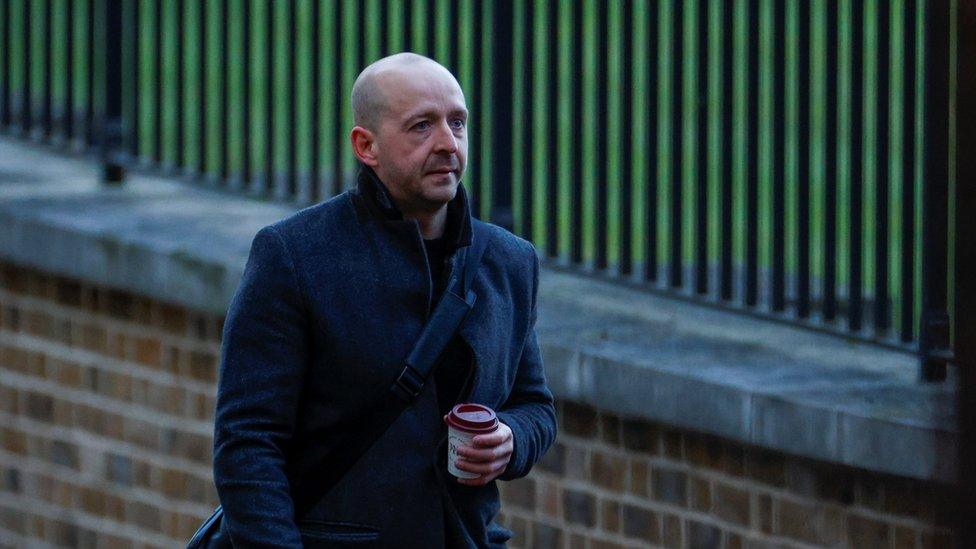
- Published14 November 2020
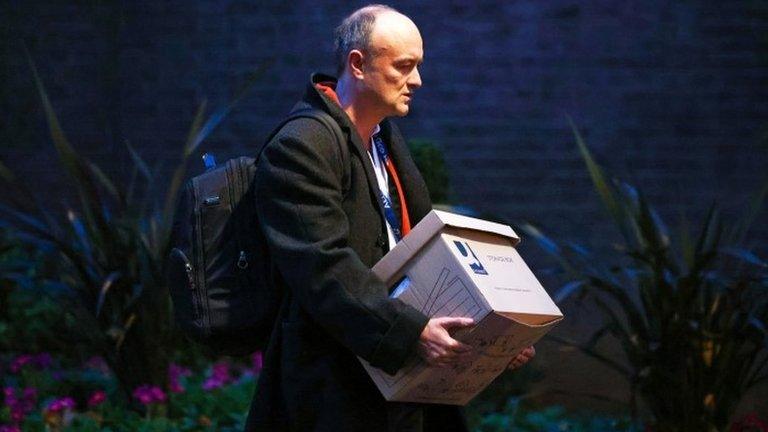
- Published21 April 2021
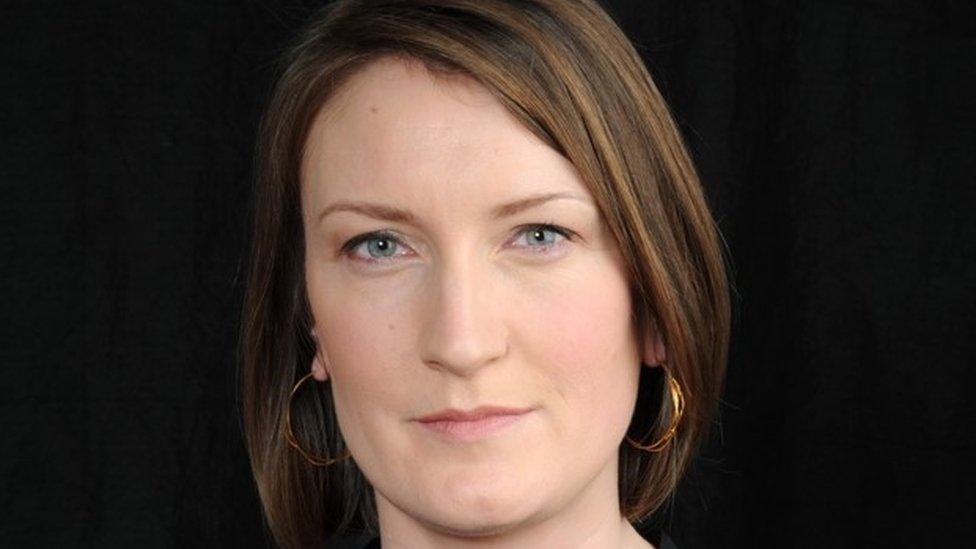
- Published10 May 2020
